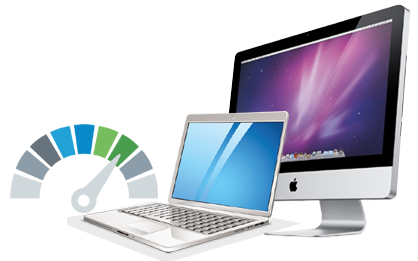 There’s nothing like the feeling of a brand new operating system running out of the box. Everything is so fast and responsive and chances are, all the necessary drivers and basic applications are working the way you want them to.
There’s nothing like the feeling of a brand new operating system running out of the box. Everything is so fast and responsive and chances are, all the necessary drivers and basic applications are working the way you want them to.
This brand new OS feeling is really quite fleeting.
Once you start installing email accounts, applications, programs and moving all sorts of files into the machine, things can get pretty crowded and performance can slow down or, even worse, some functions could break.
We’re also more connected than ever and are constantly making use of cloud services, accessing new applications through app stores of simply downloading them from the open web and this sometimes leads to unwanted trojans, ransomware or unexpected viruses that could compromise your security, erase your files or even mess your system up to the point that it can only be fixed by re-installing a backup version.
Modern OS ‘s can handle a lot of the optimization load

Operating systems like Microsoft WIndows and Apple’s Mac OS are, for the most part, capable of automatically managing and optimizing files.
Their systems are intelligent enough to allocate space and system resources where these are needed.
These companies and their engineers spend a lot of time making sure that end users don’t have to fiddle with the OS to make it run smoothly. We users still have to do our part and make sure that we have recent and complete backups of our systems accessible.
I admit I’m a bit of an obsessive when it comes to having my PCs and Macs running at peak performance but long gone are the days when I had to manually run the disk defragment (PC) or Disk Uitility (Mac) to speed up my system.
There are still times when third party applications can help improve performance. Some help you find files and applications you no longer use and remove them safely. Others are more specific and are designed to remove specific applications, malware, trojans or viruses.
Antivirus is easier but not perfect
 Computer users are in a much better place now when it comes to dealing with threats and viruses.
Computer users are in a much better place now when it comes to dealing with threats and viruses.
In the past you needed to have a third-party application running alongside the OS to sniff out and remove viruses which came via email attachments or even hidden in documents or files.
Microsoft’s Security Essentials, which are included for free with most versions of Windows or can be downloaded and installed, does a great job of keeping systems clean.
Microsoft manages to send out almost daily updates, which means that they are working proactively to keep viruses at bay, and at no cost to their customers.
Similarly, Apple’s OS X, which is based on UNIX, has been quite resilient and the company is also quite steady with their updates and patches which ensure that unwanted viruses are kept at bay. Sometimes, however, these applications may not be enough and that is why antivirus utilities might be necessary. This is specially true for computers on a network or where there is a higher chance of infection from file sharing activities.
We now have an abundance of storage space on our hard drives, which means that our systems don’t have to spend time and resources allocating space to files and programs. The problem occurs when we install an application and don’t read the fine print and unknowingly let malware or trojans or ransomware into our systems. These insidious bits of software are running in the background, sucking up resources and likely messing up other applications in the system.
Good habits like frequent backups, understanding what’s behind the files and programs we download and install, plus using the proper optimization and antivirus solution will help in ensuring computers are running in tip-top shape.



